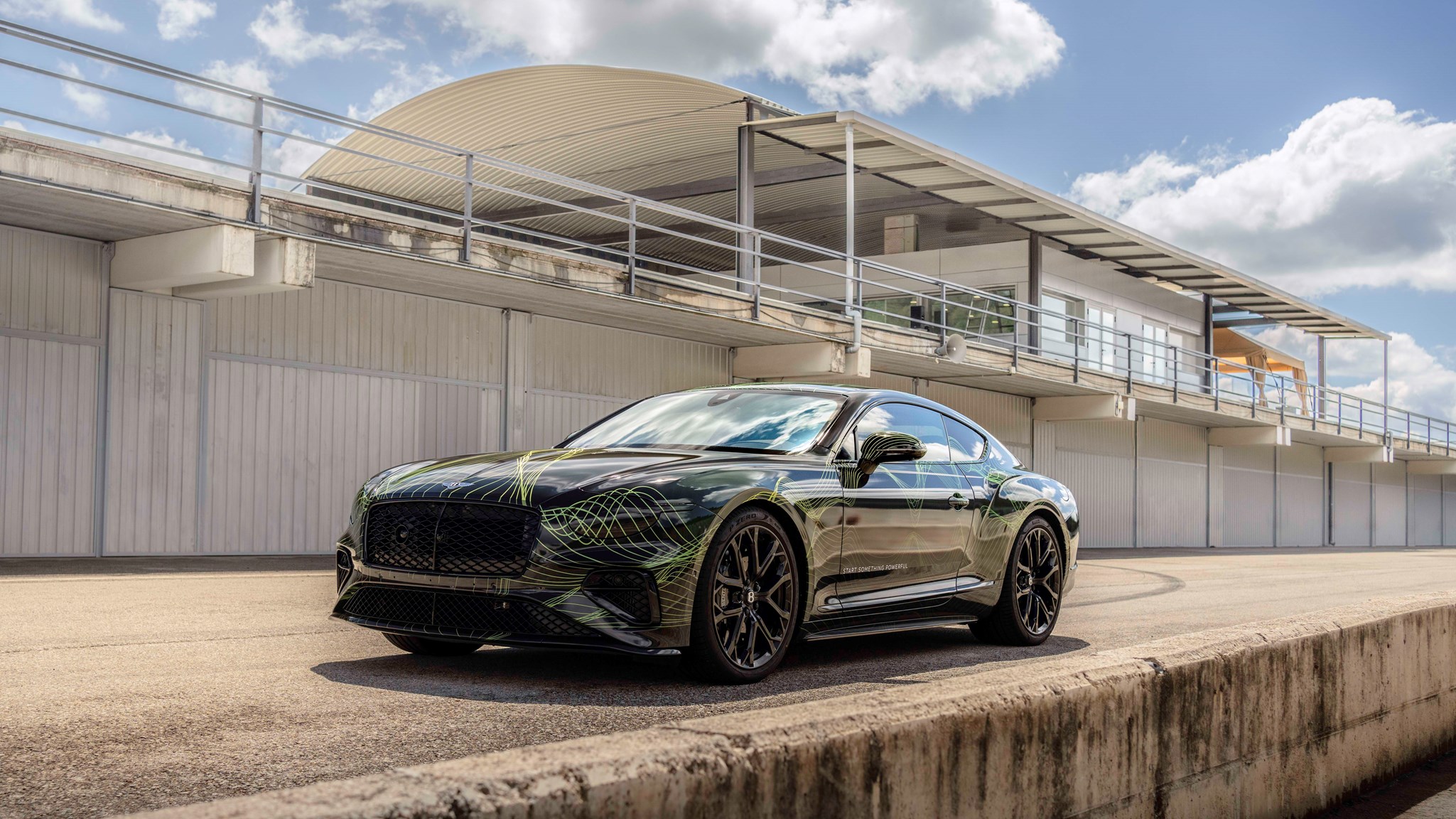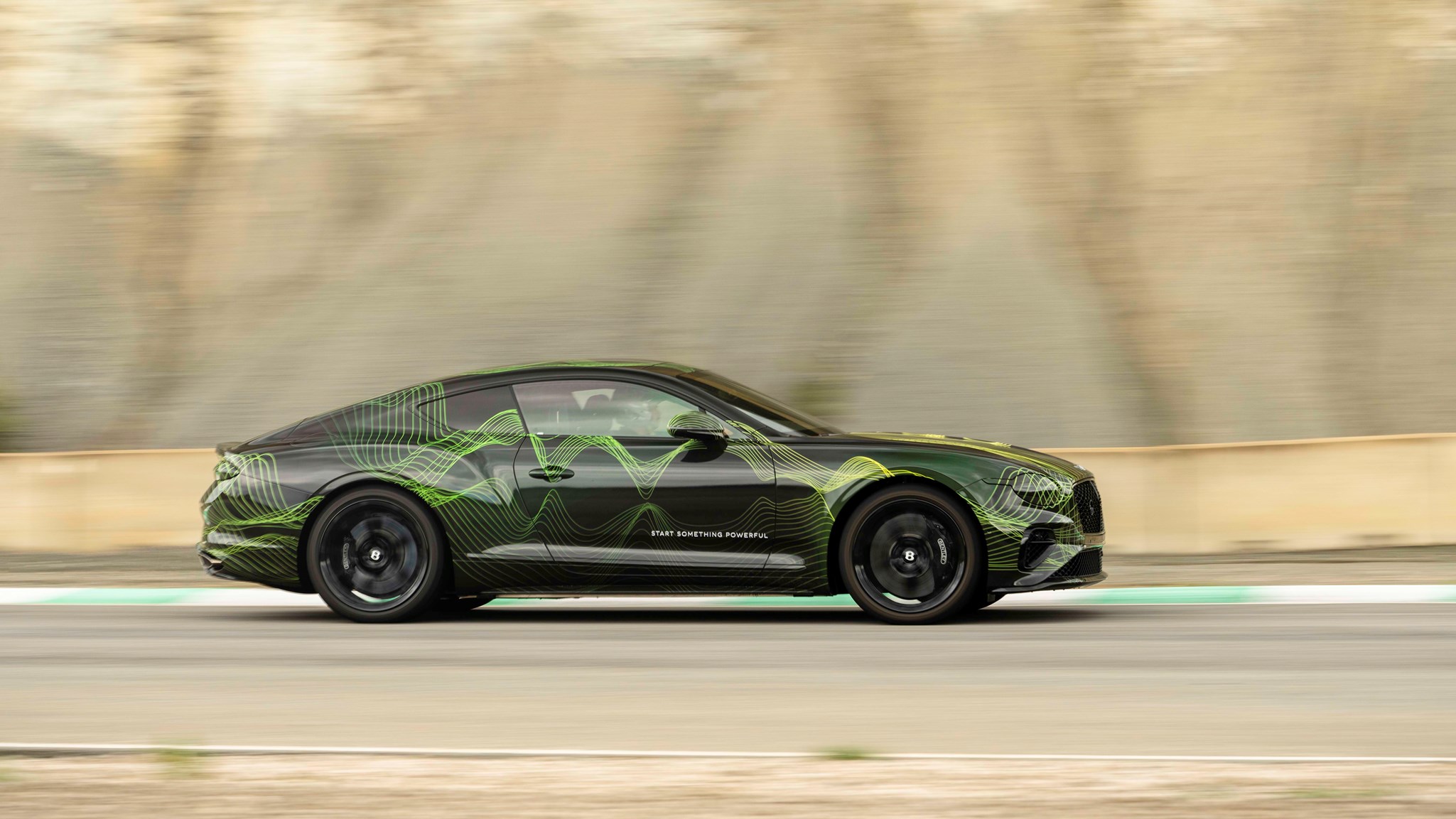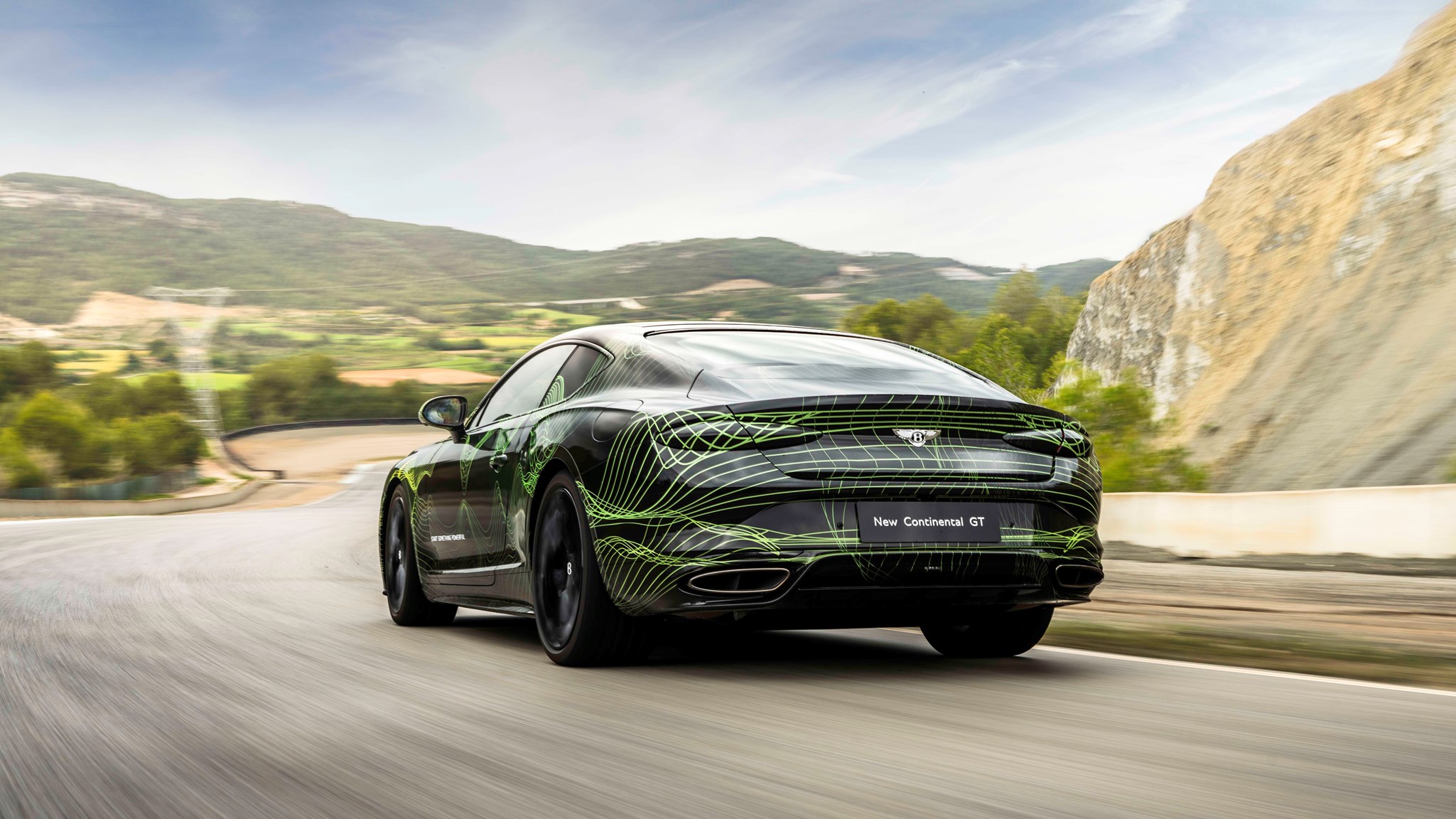► Bentley Continental GT hybrid prototype driven
► Most powerful production Bentley ever with 771bhp
► 50-mile EV range, new dampers and better weight distribution
How do you convince the mega-wealthy buyers of the Bentley Continental GT that dropping the W12 engine from its Speed model and replacing it with a V8 hybrid isn’t automotive sacrilege? Make it the most powerful Bentley road car ever, of course.
Welcome to the fourth generation of Bentley’s flagship Continental GT. Crewe’s finest has shifted almost 100,000 of the things since 2003 but now, for the first time ever, a plug-in hybrid powertrain will lead the engine line-up. As well as culling the W12, Bentley has also dropped the regular V8 (as seen in the last generation S), meaning that – for the moment – it’s hybrid or bust for the Continental GT.
We’ll find out what other changes Bentley has made to the car towards the end of June, but for now we’ve got our hands on a pre-production model and the keys to the Parcmotor Castelleloi circuit just North of Barcelona. Fish out of water it might be, but this 2.6-mile circuit – filled with a variety of corners and gradient changes – should give us a strong indication of whether the Continental GT can carry off its newfound electrification.
Tell us about the plug-in hybrid V8 engine
Think of it as a reworked version of the engine from the previous-gen Continental GT S but with added electric bits and you wouldn’t be far wrong. That means a 4.0-litre twin-turbo V8 with 591bhp, plus a 188bhp e-motor (and 25.9kWh battery). Total outputs are 771bhp and 738lb ft of torque (an additional 121bhp and 74lb ft of torque over the outgoing W12 Speed), giving a 0-62mph time of 3.2 seconds and a top speed of 208mph.

There’s also the benefit of up to 50 miles of all-electric range, available at up to 99.4mph (yes, it’s that precise). Charging can either be done via a wall box (you’re looking at 2hrs 45 mins from empty to full on a 7kW fast charger) or, if you wish, via the car’s internal combustion engine in around 1hr (0-80% refill). Naturally, this will be horrendously inefficient, but if you’re driving a V8 Bentley Continental GT, is fuel economy really all that important to you?
What else has changed under the skin?
As mentioned, we haven’t got the full picture yet but from what we do know there’s been considerable efforts to address the clear elephant in the room. See, the W12 Speed weighed in at almost 2.3 tonnes and Bentley say that the new version (complete with batteries, motor etc) comes in around 200kg heavier.
However, as cars get weightier, the engineer’s ability to make them feel lighter also seems to improve. To this end, Bentley has shifted the weight distribution backwards a touch so it now sits at a perfect 50:50 balance. What’s more, new twin-valve dampers are a clear upgrade and give the engineers more to play with when it comes to dynamic ability and comfort.

As a result, Bentley claim that the new Continental GT is more comfortable, better balanced and less snappy when pushing on. The outright ability hasn’t been transformed, yet it should be easier to exploit the limits of what this 2.5-tonne GT car can do.
How does it drive?
Early impressions are very good indeed. We can’t really comment on ride quality and refinement (circuits are typically very smooth), but the feel and balance of the Continental GT is spot on. Of course, it’s heavy and this is evident from behind the wheel. But a) it doesn’t feel as much as 2.5 tonnes and b) the weight has been made to work with the chassis.
Head into a corner with a little too much speed on and the Continental GT doesn’t feel like a runaway train. Instead, you’ve got a stable rear end and predictable push at the front. And then, once settled, there’s a surprising amount of adjustability on the throttle as the e-LSD shuffles power between the rear wheels (up to 100% of power can go to the back axle).

The brakes, too, are worth a mention. Harvesting energy for the battery is never a good omen for pedal feel, yet somehow the Continental GT’s brake pedal is blessed with enough information to haul you to a stop with plenty of accuracy. Bravo Bentley.
And the powertrain? So far, so good. Our on-track impressions showed an engine that is bristling with effortless power yet there’s still the rumbling soundtrack you’d expect from a Bentley. It certainly doesn’t feel like it’s lost any of its voice with the move to hybrid. What’s more, the mid-range torque fill gives a useful boost of extra punch (this will probably be more evident on road) but also feels like it continues right into the top end around 6,000rpm.
Verdict
It’s hard to say how customers will respond to the Continental GT going V8 hybrid-only when orders open in July 2024 (price tbc), but from a technical standpoint there appear to be few concerns – quite the opposite, actually.
Many (including this reviewer) preferred the V8 to the W12 in the previous gen Continental GT and the hybrid element appears to have done nothing to take away its charm and character. Rather, it’s added an additional element of serene usability and delivered a healthy – if not entirely necessary – dose of extra performance.
